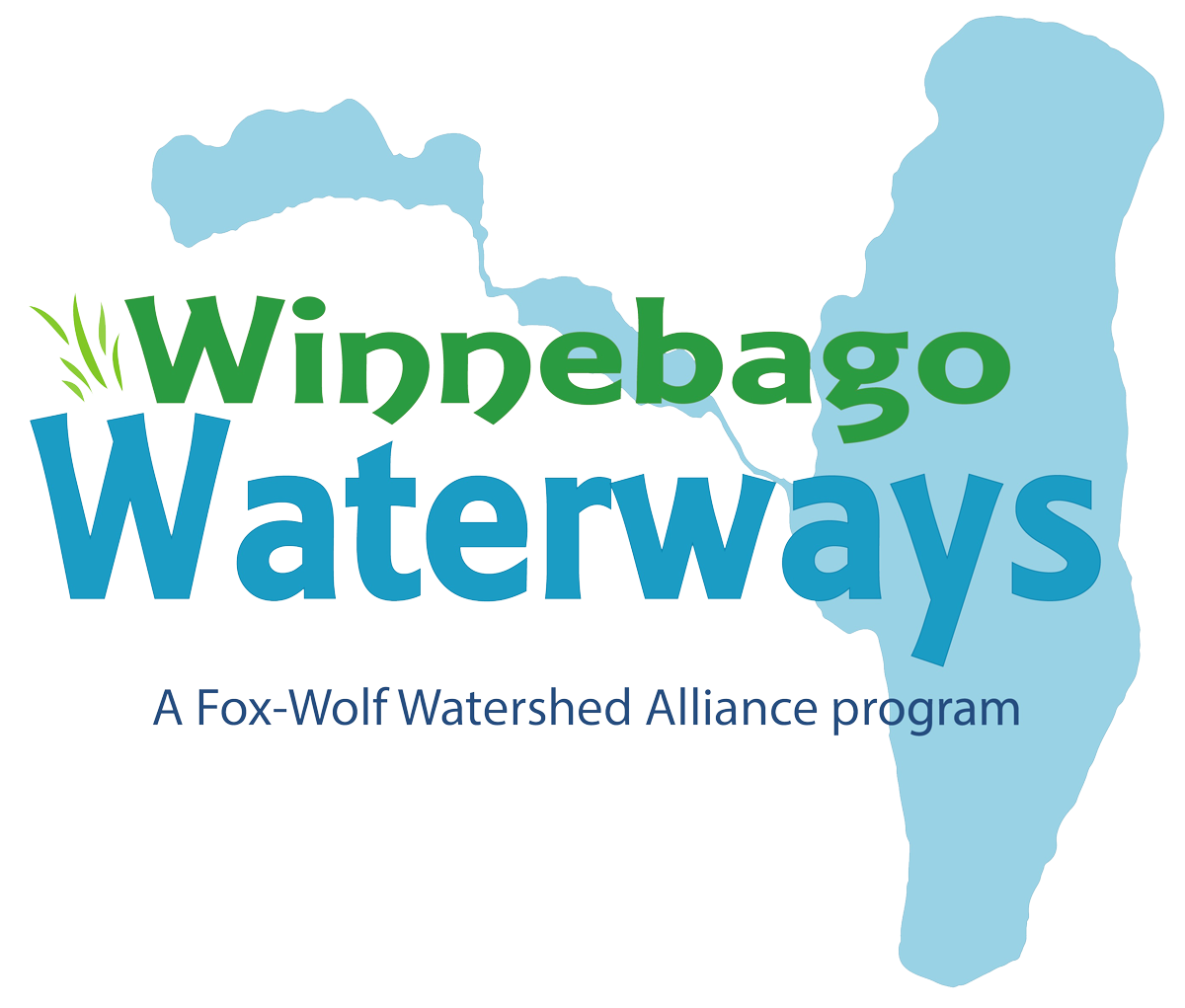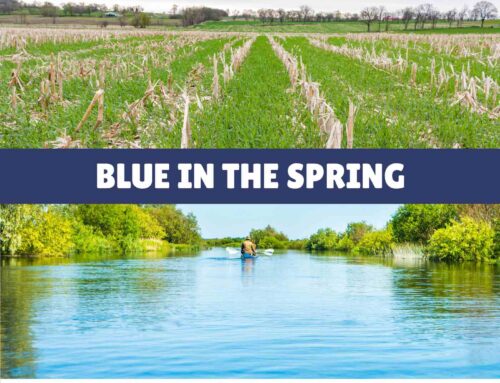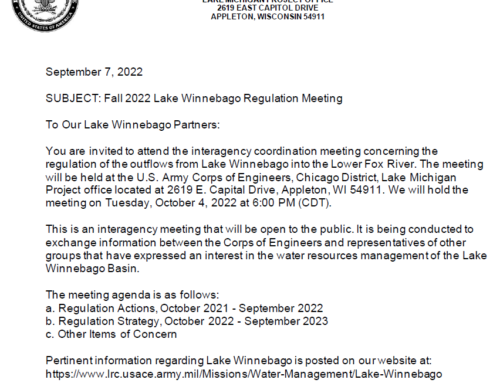Our Rat River Farmer Champions are part of our Increase Adoption of Soil Health Conservation Systems in the Rat River Watershed project.
Three farmers from the Rat River Watershed in Winnebago County have teamed up with the Winnebago Waterways Program at Fox-Wolf Watershed Alliance and Winnebago County Land and Water Conservation Department to implement conservation farming practices on their farms.
These practices including no-till, cover crops, and low-disturbance manure management, help reduce surface water runoff keeping the soil and phosphorus on the farm. This helps to protect our area lakes and rivers while also improving soil health.
Click on the name of each farmers to learn about their operation:
What are cover crops?
Crops such as cereal rye, oats and winter wheat are planted to temporarily protect the ground from wind and water erosion and supply living roots to the soil during times when cropland is often not adequately protected.
How do cover crops help?
- Keeps ground covered to protect it from soil erosion
- Improves soil health by adding organic matter and biological activity
- Crops such as tillage radishes have a taproot that can help improve water infiltration
- Traps nutrients (phosphorus)
- Can reduce weed competition and provides livestock grazing opportunity
What is no-till?
Traditional farming techniques use plows to dig into and turn the soil, disturbing the topsoil and any root matter. No-till techniques slice into the soil just enough to allow seeds to be planted, disturbing the soil surface only minimally.
How does no-till help?
- Increases microbial activity helps to build soil structure and improve soil health
- Increases water infiltration from the formation of root channels and other near-surface voids
- Sequesters additional carbon in the soil
- Reduces particulate soil emissions (dust), which improves air quality
- Fewer trips with no-till reduces soil compaction, requires less energy use, and saves money through fewer inputs
- Increases plant-available moisture
What is low-disturbance manure injection?
Low-disturbance manure injection (LDMI) is a farming method using a piece of equipment that injects manure several inches under the soil surface. This technique places the nutrients into the crop’s root zone and prevents them from washing off the soil surface.
How does it help?
When manure washes into nearby waterways, it brings phosphorus with it. Injecting the manure keeps it from washing off the surface.
- Helps facilitate nutrient uptake
- Reduces odors
Learn about the other two Farmer Champions in the Rat River Watershed on the project webpage.
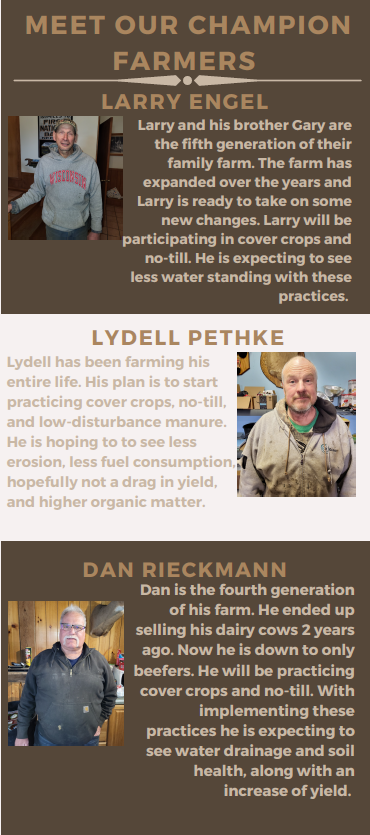
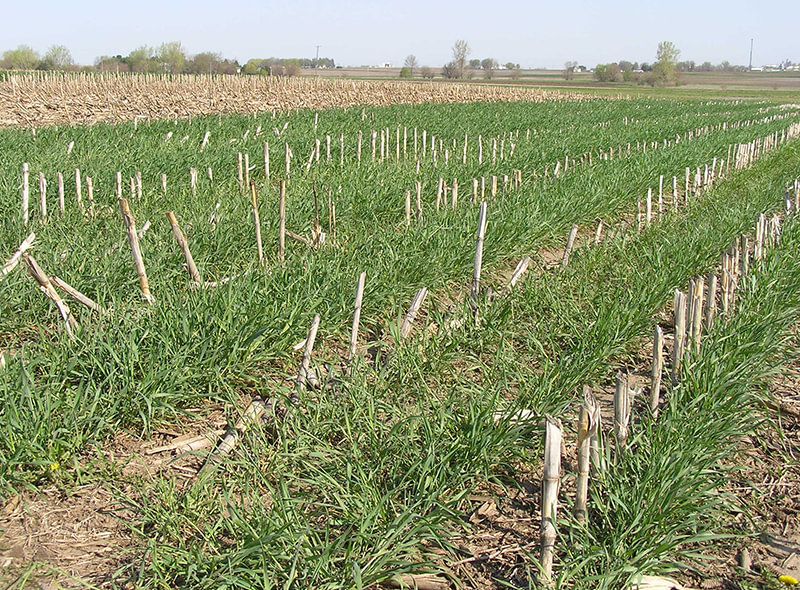
Cover crop planted into corn silage residue. Photo: Mycogen Seeds
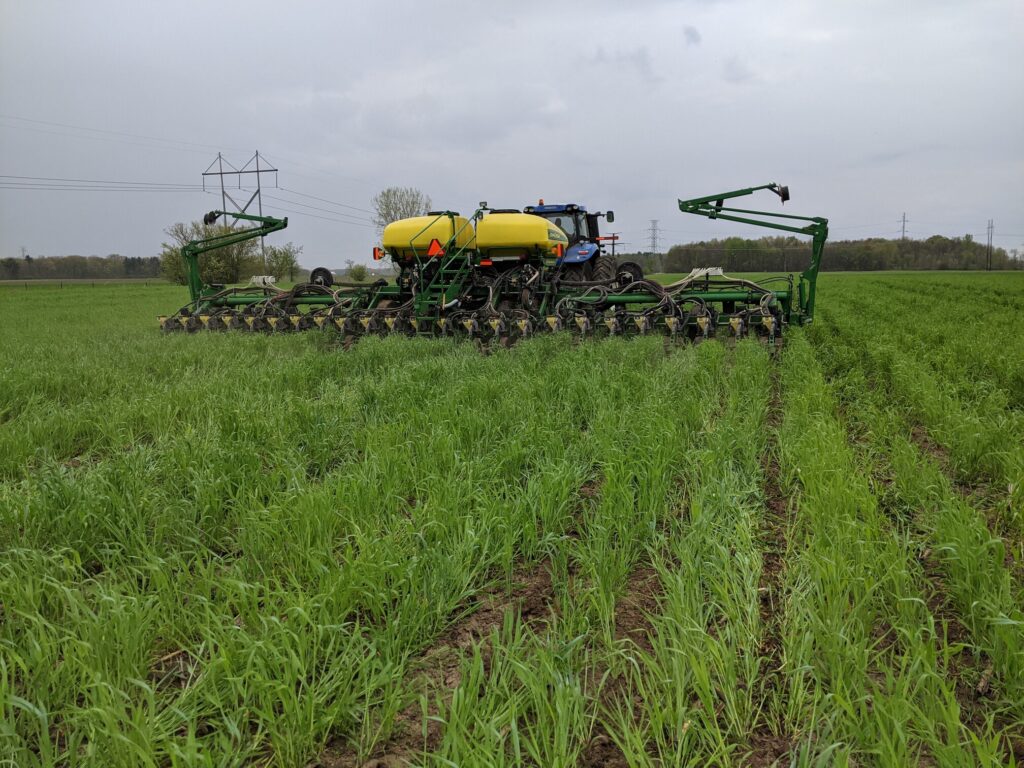
Huebner Farms employ no-till planting
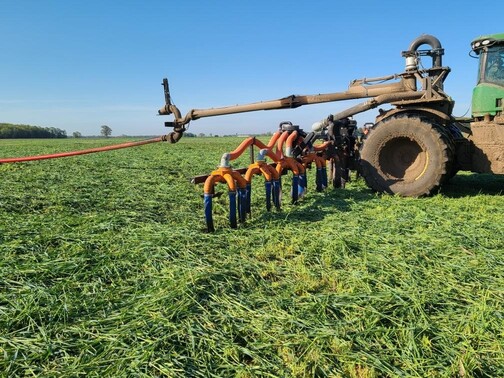
Seven Oaks employs low disturbance manure application
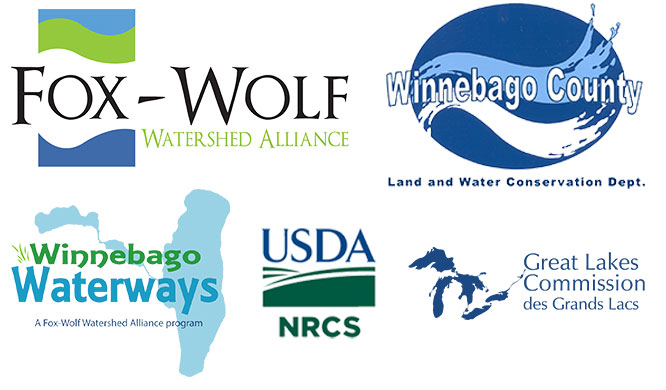
(Info Source about cover crops, manure injection, and no-till is from Clean Lakes Alliance)
This project is funded by a Great Lakes Commission GLSNRP grant
This project is one of several efforts taking place in the region to improve and protect the Winnebago Lakes. Find out more at www.winnebagowaterways.org and www.soilhealthinprogress.org.
Questions? Contact us:
Climate Smart Agriculture Project Manager: Katie Woodrow, 920.915.5767 or katie@fwwa.org
To receive periodic updates on these projects as well as many others, please subscribe to our newsletters: CLICK HERE
Winnebago Waterways is a Fox-Wolf Watershed Alliance recovery initiative. Contact us at wwinfo@fwwa.org


